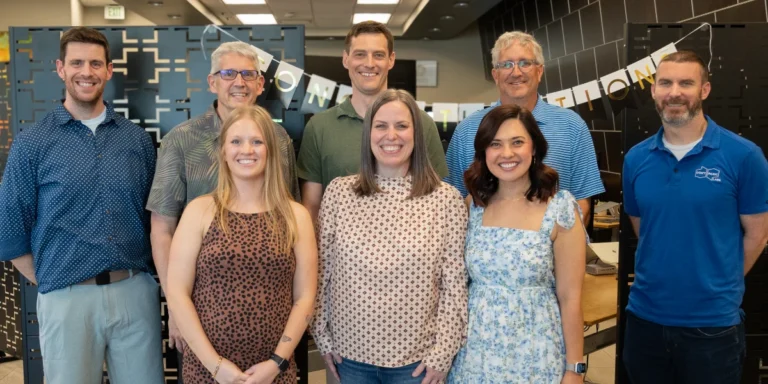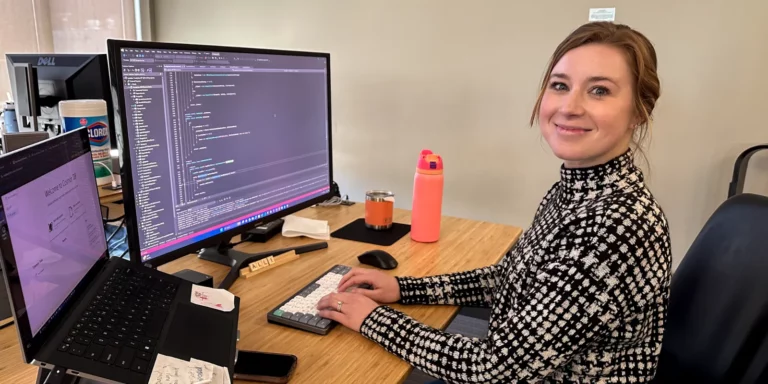
Reinforcing Software Development Topics with Capstone Projects
Our Pathways Program is a unique approach to educating new and leveling up existing software developers. While each of the four pathways (Optimization, Discovery, Transition, and Elevation) targets different levels of knowledge and experience, one thing all pathways share is the capstone project.
Capstone Projects in Education
If you’re unfamiliar with capstone projects in the context of educational environments, they’re – at the highest level – an experience that allows students to demonstrate what they have learned during their academic careers.
Capstone projects encourage students to explore their passions, develop leadership skills, and learn to work in teams. Educators also benefit from capstone projects, usually by leveraging outside perspectives and innovative ideas to improve how courses are presented in the classroom.
Capstone projects can take many forms. Sometimes, they are research papers. Other times, they are internships or non-classroom programs in a student’s field of study. And yet other times, they are group projects. This third example is what we use in our Pathways Program.
Capstone Projects in the Pathways Program
Capstone projects have been part of the Pathways Program since launching in 2020. The drive to include a capstone project in the curriculum came from our desire to give participants a hands-on experience with an actual project – no throwaway projects here. We also wanted the participants to feel pride in what they were accomplishing. And what better way to do that than to have their software development efforts go toward giving back to the community?
Some of our past capstone projects include My Companion (an app created for the Nebraska State Suicide Prevention Coalition that encourages youth to communicate their feelings in a journal-like format and helps them create a support system and crisis system) and Angels Among Us (a mobile app that extends the mission of the Omaha-based nonprofit assisting families battling pediatric cancer).
The capstone project for the Summer 2023 cohort is to update a system called VolunteerOne. Initially built in 2014 by Don’t Panic Labs interns, VolunteerOne allows companies to record and track their employees’ volunteer efforts. Pathways participants have been re-writing the platform from the ground up to take advantage of modern technologies and software architecture principles. This introduces new developers to the patterns and tools they’ll need to succeed in the future.
Summer 2023 Capstone Project
As I write this, our Summer Pathways cohort is nearing its conclusion. Our participants are putting what they’ve learned into practice as they work on their capstone project.
So far, the cohort has delved deep into the intricate world of APIs and wrestled with the nuances of C#. They laid the foundation for a modernized Volunteer One, building the robust backend that forms the platform’s backbone.
Participants are now applying their newfound expertise in Angular by crafting interfaces that interact with their APIs. This hands-on experience solidifies their understanding of software development and prepares them for creating and maintaining real-world applications.
After completing this work, participants will have worked on a full vertical slice of the system, integrating all aspects of the platform, from the user interface to the database. This approach will help them develop into full-stack engineers who can comprehend and maintain complex software systems.
By the end of this cohort, these developers will have moved VolunteerOne closer to being considered a Minimum Viable Product (MVP). As we approach this milestone, we hope to gain the support of several nonprofits that will engage with the system to create volunteer opportunities for those ready to impact their community. After VolunteerOne is released, future Pathways participants will add features to support volunteer efforts and the positive changes they will create.
A Teacher’s Pride
I am incredibly proud of what this cohort has accomplished and how they have moved VolunteerOne forward. As an instructor, I enjoy the capstone section of every cohort. Teaching new concepts and ideas is fun, but I find even more satisfaction seeing how each participant takes what they learned and creates something new.



